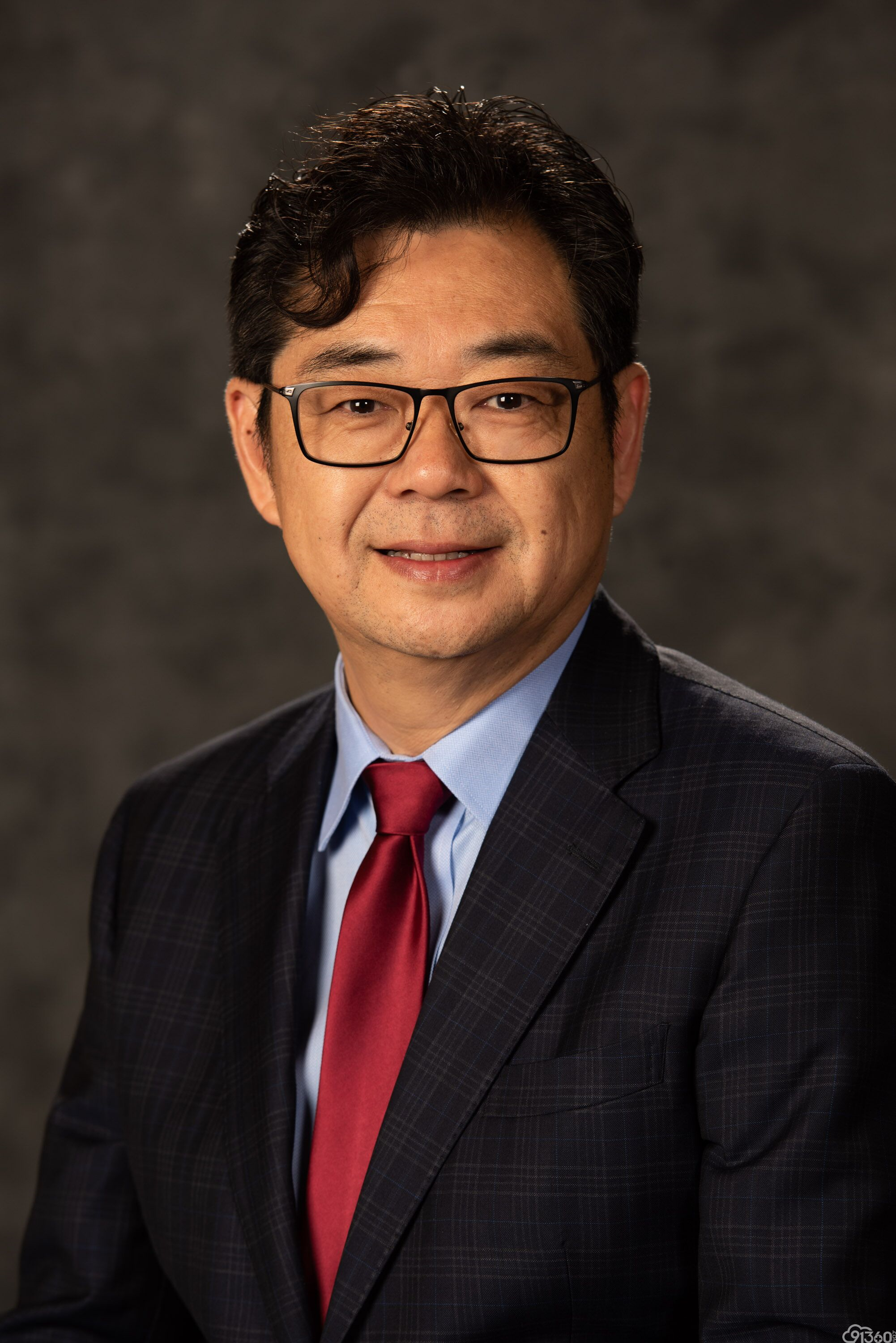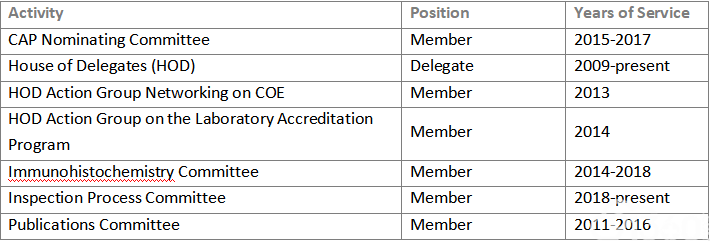
Consultant Pathologist
Director FISH Laboratory
Mayo Clinic Florida
Board of Governor
College of American Pathologists
2019-2021
Dr. Jim Zhai is a genuine three-shield Mayo physician. He is not only an excellent diagnostician pathologist; he is also a passionate educator and investigator.
Dr. Zhai is a professor of laboratory medicine and pathology at Mayo College of Medicine and a consultant pathologist and director of the FISH Laboratory at Mayo Clinic Florida.? He did his pathology residency in Mayo Clinic Rochester and an oncologic pathology fellowship at MD Anderson Cancer Center.??He is extremely prolific; he published more than 200 peer-reviewed manuscripts and research abstracts, he authored and edited seven major pathology textbooks, covering a wide-spectrum of topics in diagnostic pathology as well as quality management.??He serves as section and leading editor in some most cited pathology journals. Jim’s research has been focused on translating emerging molecular advances into diagnostic and therapeutic guidance in daily practice by integrating morphology, immunohistochemistry, and liquid biopsy.
Jim has been a repeat USCAP short course faculty for more than 12 consecutive years in several subspecialties, including Head and Neck, Thyroid, GU, and Diagnostic Immunohistochemistry. ?He is a well-sought after speaker internationally. His "making complex things easier” analytic skills with mindful clinical relevance and a sense of humor make his interactive teachings enjoyable; meanwhile the audience feels updated and leaves the session with confidence.
Jim has generously donated his time, efforts, and expertise to our pathology societies, including USCAP, CAP, ASCP, Florida Society of Pathologists, Houston Society of Clinical Pathologists, and others. His leading efforts make a significant positive impact on our profession and fellow pathologists. Here are a few commitments to national and regional pathology organizations:
College of American Pathologists (CAP):

Medical Editorial Board to CAP Today, 2011-2016
Section Editor ENT Pathology to “Archives of Pathology and Laboratory Medicine”, 2005-present
Section Editor IHC to “Archives of Pathology and Laboratory Medicine” 2005-2014
Lead author “Quality Management in Anatomic Pathology: Strategies for Assessment, Improvement, and Assurance” published 2017 by CAP Press.
Lead Author “Grossing, Staging, and Reporting: An Integrated Manual of Modern Surgical Pathology” summer 2019 by CAP Press
Florida Society of Pathologists (FSP):
For the last six years, I have been heavily involved with FSP, playing different roles, including chair of the Education Committee, secretary, vice president, and currently president-elect.
Due to the strong competition of education conferences in Florida, the FSP annual meeting was not in great shape: attendance declined dramatically, revenue decreased, and the society had been losing money for several consecutive years. Using team efforts and collective wisdom, I took innovative measures to improve the meeting. These included adding interactive microscopy sessions, attendance survey and follow-ups, timely topics, industrial lectureship.
As a result of these efforts, the FSP Annual Meeting turned into one of most attractive state pathology conferences. Now nearly 300 pathologists regularly attend our winter annual meetings.
As for FSP summer meetings, rather than stopping them, FSP Summer Conferences have become much stronger. Around 150 to 200 pathologists attend regularly. As a result, the FSP financial status is strong again and we are making significant profit to support our education and advocacy missions for the FSP members. Our membership is stronger than ever, too.
United States and Canadian Society of Pathologists (USCAP):
I served on the Education Committee of USCAP from 2008 to 2012. During that time, I was heavily involved with planning and organizing the USCAP Annual Meeting, including selecting long course directors, evaluating shorting course proposals, scoring the abstracts to be accepted, and assigning them to be presented as posters or oral presentations.
One of the important changes I proposed, which was subsequently accepted and implemented, is to change a four-year cycle to a three-year cycle for all of the short courses. This change has dramatically increased the turnaround time for the courses and updated the knowledge and information much more quickly. Also, more faculty members have been accepted to teach. This made a three-year cycle short course much more attractive cost-effective. Therefore, the three-year cycle of USCAP short course remains unchanged until now.
Houston Society of Clinical Pathologists (HSCP):
I served as chair of Scientific Programs, treasurer, vice president, and president-elect for this 325-member pathologists’ organization. I was scheduled to be the president in 2009; however, I relocated in early 2009. During my tenure as an HSCP officer, I made significant contributions to its education program, membership, and financial strength.
American Society of Clinical Pathology (ASCP):
I served on the Pathologist Recertification Individualized Self-Assessment Examination Committee (PRISE) (now called Resident Question Bank Committee) 2014-2015. The ASCP PRISE Committee provided a tool for practicing pathologists and pathology residents to self-assess their pathology competencies, skills, and knowledge, including Residents In-Service Examination (RISE).
Chinese American Pathologist Association (CAPA)
CAPA is an organization for pathologists practicing in America but originally from China and pathologists who cherish Chinese culture. I am one of the earliest CAPA members since 2002. I served several leadership roles including president from 2014 to 2015. I have contributed hundreds of hours and made significant positive impact on this excellent organization.
The organization now has more than 500 members (and is still growing in a pool of around 1,500 such pathologists).




 苏公网安备 32011402011742
苏公网安备 32011402011742